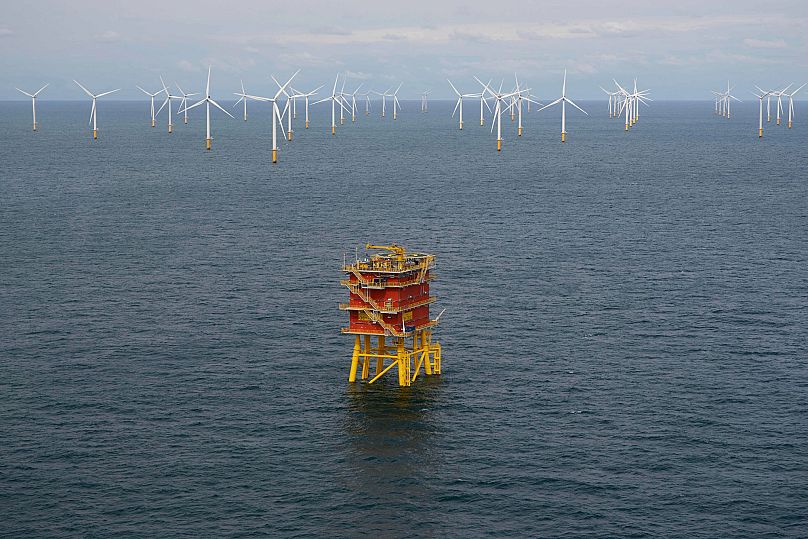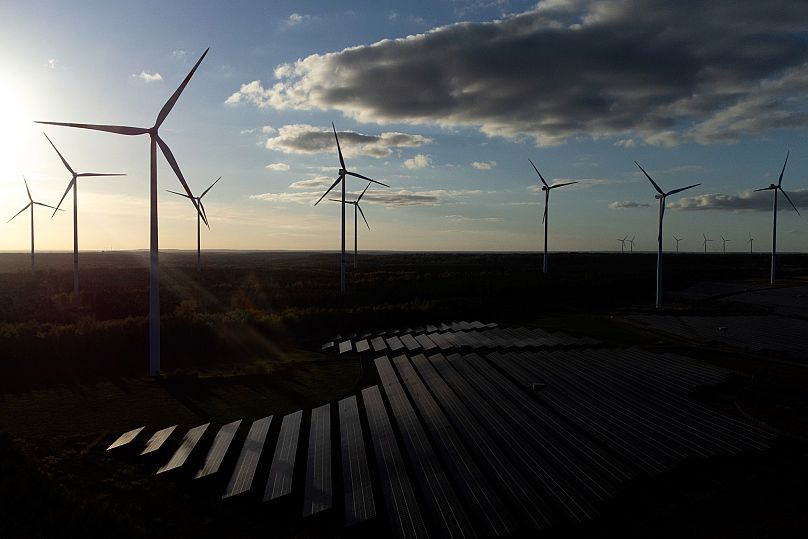Euroviews. The Clean Industrial Deal is an opportunity to increase competitiveness and resilience
We believe there is a vital küresel role for Europe to play in the coming decades and beyond. Our vision is to lead in clean technologies that will benefit Europeans and people worldwide. That is why we are engaging in discussions to shape the EU’s Clean Industrial Deal.
The Clean Industrial Deal is meant to be a bold initiative designed to both enhance the competitiveness of Europe’s industry and accelerate the transition to a carbon-neutral and circular economy. However, it will only be successful if it leverages competitive decarbonisation to bring down energy costs and increase resilience.
These goals are within reach. We have a major opportunity to strengthen Europe’s strong industrial ecosystem of companies with readily available technology, know-how, and the required skilled workforces to make it a reality.
Our group of seven companies is now calling for action by proposing four policy recommendations to be included in the Clean Industrial Deal, which could have an immediate impact on the EU’s industrial competitiveness.
We see these recommendations as a way to follow up on the Clean Industrial Deal with sustained ambition, predictability and long-term thinking to create a brighter future.
Promote energy efficiency, accelerate electrification
To reduce energy costs and enhance energy security, Europe must adopt cost-effective energy efficiency measures. In doing so, manufacturing industries could nearly double the gross value added per unit of energy by 2040, according to the IEA.
For example, energy consumption and use of resources in product development, industrial operations, process management, factory design and automation can be optimised with digital solutions. Our buildings can be made smarter with connected heating and cooling technologies.
Efficiency requirements should expand from individual products to system-wide processes, supported by an ambitious heating & cooling strategy. Member states now have a major opportunity to turn this into reality when implementing the revised Energy Efficiency Directive and Energy Performance of Buildings Directive.

Electrification is key to making the energy transition affordable. Without it, progress on energy efficiency and uptake of renewables will remain too low. Taking the example of industry, existing technology can electrify approximately 78% of industrial energy use.
However, today electricity covers only about one-third of the EU’s industrial energy consumption. To accelerate the energy transition, the Electrification Action Plan should focus on measures to boost electrification across all end-use sectors, with a target of 35% electrification by 2030, and specific targets for sectors.
Strengthening Europe’s electricity grids through infrastructure investment, digitalisation, and boosting demand flexibility management is essential. This must go hand-in-hand with unlocking grid flexibility through digitalisation and price incentives.
The European Grids Package should accelerate the smartening of the electricity grid, potentially cutting investment needs by 18% and saving up to €55 billion annually. There should be dedicated support for SME electrification and digitisation.
Integrated approach to our energy system and other incentives
To enhance the flexibility of European energy systems, better integration of sectors should be incentivised. For example, we could leverage resources such as the 2,860 TWh of waste heat available annually in the EU.
This is almost the same as the EU’s total energy demand for heat and hot water. Mandatory heat planning provisions should be implemented to help regions and municipalities assess and optimise waste heat use – a speedy implementation of the revised energy efficiency directive will be crucial in this respect.
Delivering on common interoperable veri spaces (energy, buildings, industry, mobility) should also become a priority. Doing so will enable data-driven business models and digital services, enhancing both profitability and the EU’s green transition.

Predictable and accessible financing measures are crucial to enable industries to adopt cost-effective solutions and foster partnerships for funding, regulatory support, and shared resources.
Incentives such as tax credits should be explored to accelerate energy efficiency and electrification, leveraging funds from mechanisms like ETS. Additionally, recovery funding and public procurement should prioritise innovative net-zero and sustainable technologies and simplify access to finance.
Industrial partnerships, as envisioned in Article 23 of the Energy Efficiency Directive, should be established to create energy efficiency roadmaps, assess investment needs, and future-proof key sectors. Such partnerships should sit alongside raising awareness and educating stakeholders about the benefits of available technologies.
The next step
As industry leaders, we remain steadfast in our commitment to supporting Europe’s green transition and thus ensuring innovation, resilience, and competitiveness. We are optimistic and firmly believe that Europe’s opportunities far outweigh the challenges we face.
The Competitiveness Compass, released two weeks ago, suggests tailor-made plans for energy-intensive sectors. In this context, we urge EU policymakers to also consider the role of clean and digital technologies in supporting the sustainable growth of energy-intensive companies.
We — and many other industries in Europe — are already transforming our operations, turning the challenge of decarbonisation into a powerful driver of competitive advantage through lower energy costs.
While we eagerly await the Clean Industrial Deal, it cannot stand alone. It must be followed by concrete actions, from both member states and industries. Together, we stand ready to engage in the political discussion and support the EU’s economy for a sustainable and competitive future.
Jürgen Fischer is President of Danfoss Climate Solutions; Gwenaëlle Avice Huet is Executive Vice President of Europe Operations and Member of Executive Committee at Schneider Electric; José La Loggia is Group President, EMEA at Trane Technologies; Karin Lepasoon is Chief Communications & Sustainability Officer at ABB; Katie McGinty is Vice President and Chief Sustainability and External Relations Officer at Johnson Controls; Lars Petersson is CEO of VELUX Group; and Judith Wiese is Chief People and Sustainability Officer, Member of the Managing Board and Labour Director at Siemens.
